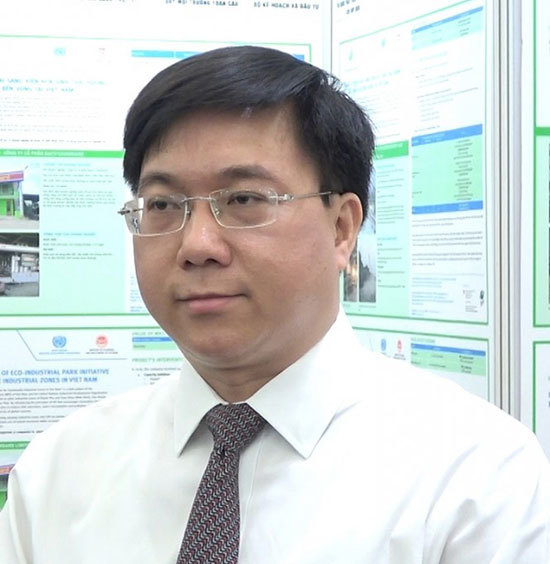Firms in HCMC industrial zones decry multiple obstacles
Ecological industrial zones are still only on paper
Vietnam wants more ecological IZs
 |
| Tran Duy Dong. |
What are the major impacts of the “Implementation of Eco-Industrial Park Initiative for Sustainable Industrial Zones in Vietnam" in the course of national socio-economic development?
With assistance from UNIDO, the Ministry of Planning and Investment launched the project in 2014 with the objective of speeding up the process to transfer, implement and multiply technology and measures to reduce dangerous waste, greenhouse emissions and substances which may cause water pollution in industrial parks nationwide.
Over the past five years, the project has been implemented at 72 enterprises in industrial parks in the northern province of Ninh Binh, Can Tho in the Mekong Delta and Da Nang in central Vietnam. During that time, these enterprises were able to save more than US$6.5 million, over 22,000MWh of electricity, 600,000 cubic metres of clean water, and almost 3,600 tonnes of chemicals and other substances. More importantly, during those five years, some 32Kt of CO2 was reduced annually.
The project has greatly contributed to the issuance of rules and regulations for the establishment and operation of eco-industrial parks in accordance with Government Decree 82 issued in May 2018. Decree 82 has served as a foundation for all current industrial parks to switch to eco-industrial parks.
What has been achieved in the UNIDO project has greatly contributed to helping Vietnam to achieve its target of green growth as well as its strategy for sustainable development and the nation’s 10-year strategy on socio-economic development from 2010-2020.
What are the most important points during the course of implementing the eco-industrial park model?
All parties concerned, from the central to the local agencies, should thoroughly understand the concept and benefits of an eco-industrial park as well as required conditions to switch to the eco-industrial park model.
From the enterprise perspective, there are two groups – the first group includes all infrastructure development industrial companies. The infrastructures in these companies must follow the Government Decree 82. For the second group, enterprises leasing land for their production. A very important criterion that all project owners have to abide by is to look for clean production and to improve their competitive capacity in the course of their production.
Last but not least, in the course of pursuing an eco-industrial park, the project owner should raise the awareness of an eco-industrial park for people living next to the industrial park. And the people will act as supervisors in the course that the industrial park is switching to an eco-industrial park.
Last but not least, the Government should adopt a special policy on preferential loans for enterprises willing to switch to clean technology in their production.
What is the plan for the second phase of the project?
In the first phase, we have successfully developed a legal framework for green production. For the second phase which will start soon, we’ll continue to do what we have been doing, but with more specific activities to help the enterprises to adopt cleaner production measures.
In the meantime, we will promote co-operation among enterprises in implementing the task of industrial hygiene through the collection of enterprise management data– a new element that was not yet done much in the 1st phase of the project.
Besides, we will also co-operate with concerned government agencies and sectors to develop more legal documents in the course of implementing the Decree 82 and then to multiply the project nation-wide.
VNS
 Tran Duy Dong, director general of the Department for Local and Regional Economy under the Ministry of Planning and Investment, speaks to Industry and Trade newspaper about the development of eco-industrial parks in Vietnam.
Tran Duy Dong, director general of the Department for Local and Regional Economy under the Ministry of Planning and Investment, speaks to Industry and Trade newspaper about the development of eco-industrial parks in Vietnam.